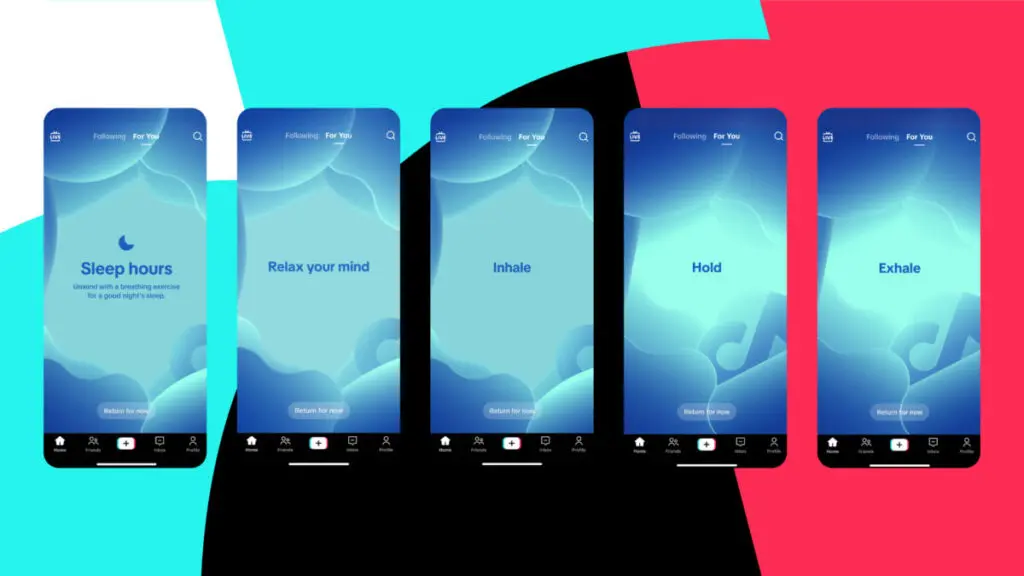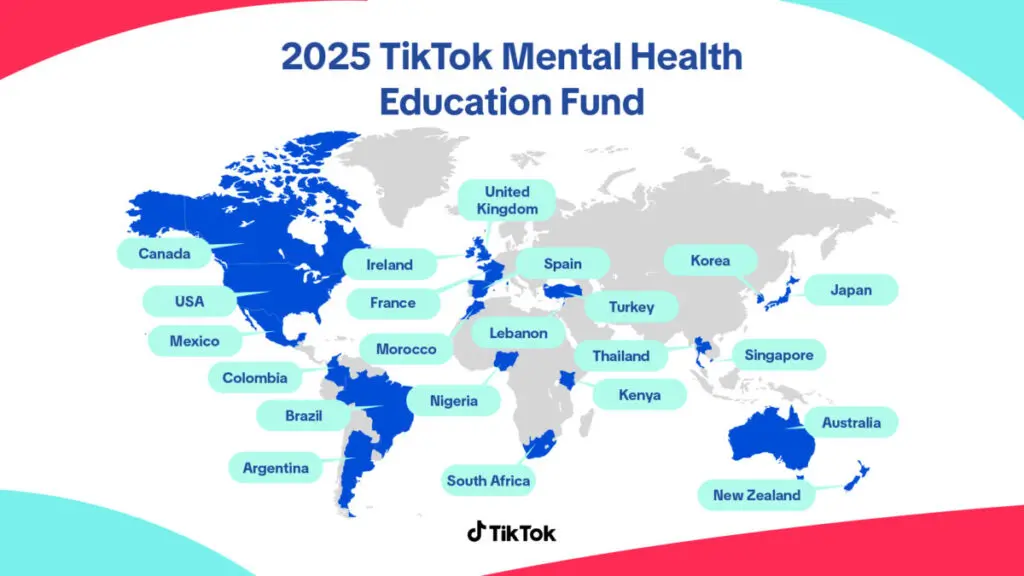- TikTok launches "Meditation in Sleep Hours," encouraging users to engage in meditation before bed for better sleep.
- A $2.3 million donation in ad credits supports 31 mental health organizations in 22 countries, enhancing mental health education and outreach.
- TikTok’s in-app meditation feature has proven effective, with 98% of teen users keeping the feature on after testing.
- The initiative is part of TikTok’s broader commitment to improving mental health support for users, particularly teens, and raising awareness about mental health issues.
- The new meditation tools and the Mental Health Education Fund are vital steps toward encouraging better digital habits and supporting mental health on a global scale.
TikTok has introduced new initiatives aimed at supporting users' mental health and well-being, with the launch of guided meditation tools and a significant donation to mental health organizations. These efforts are part of TikTok's ongoing commitment to promote healthier digital habits and raise awareness about mental health challenges, particularly among its young audience.
Let's explore TikTok's latest mental health initiatives, their potential impact, and how these efforts align with the platform's ongoing efforts to support its community's well-being.
Meditation Tools for Better Sleep
One of the key features is the "Meditation in Sleep Hours" tool, designed to help users, especially teens, wind down before bed. The tool provides in-app guided meditation exercises that interrupt the "For You" feed after 10 p.m., encouraging users to take a break from scrolling and engage in relaxing activities.

Source: TikTok
Research has shown that mindful meditation can improve sleep quality, and the new feature aims to foster healthier sleep habits by making it easier for users to disconnect.
TikTok tested this feature, and 98% of teens who used the meditation tool decided to keep it activated.
TikTok also partnered with Dr. Willough Jenkins, a child psychiatrist and TikTok creator, to highlight the importance of such tools for young people. In a TikTok video, she outlined the necessity of getting a good night's sleep.
@drwilloughjenkins Sleep is one of the most powerful tools we have for mental health, especially for teens. But winding down isn’t always easy. That’s why I’m loving TikTok’s new Meditation in Sleep Hours feature. It helps teens and adults step away from the scroll and into a calmer night with guided meditations, soft music, and reminders when it’s time to rest. To turn it on: Go to Settings and Privacy > Screen Time > Sleep Hours Set your bedtime, and let the app help you unwind. Let’s build better sleep habits, together. #TikTokPartner #TikTokMeditation #SleepWell #BetterSleep ♬ Aesthetic - Tollan Kim
This feature will be rolled out to all users, but for teens under 18, it will be enabled by default. Adults can also access the feature via the Screen Time settings page.
Expanding the Mental Health Education Fund

Source: TikTok
Along with the meditation feature, TikTok has significantly expanded its Mental Health Education Fund, pledging $2.3 million in ad credits to 31 mental health organizations across 22 countries. This expansion is part of TikTok’s ongoing commitment to support mental health awareness and provide resources for users worldwide.
Johanna S. Kandel, Founder and CEO of the National Alliance for Eating Disorders, praised TikTok’s contributions, saying,
The Mental Health Education Fund aims to provide financial resources and support for mental health organizations to create content that resonates with the TikTok community. This initiative seeks to promote mental health education and provide users with access to reliable resources and support services.
Raising Awareness and Connecting Users to Support
TikTok’s partnership with mental health professionals and organizations underscores the platform’s commitment to fostering a healthier, more supportive community.
The collaboration with creators like Dr. Willough Jenkins ensures that users have access to trusted resources. In the words of Dr. Jenkins,
TikTok’s investment in mental health resources also signals the platform’s broader responsibility in promoting well-being, especially for younger audiences who may be more susceptible to digital pressures.

